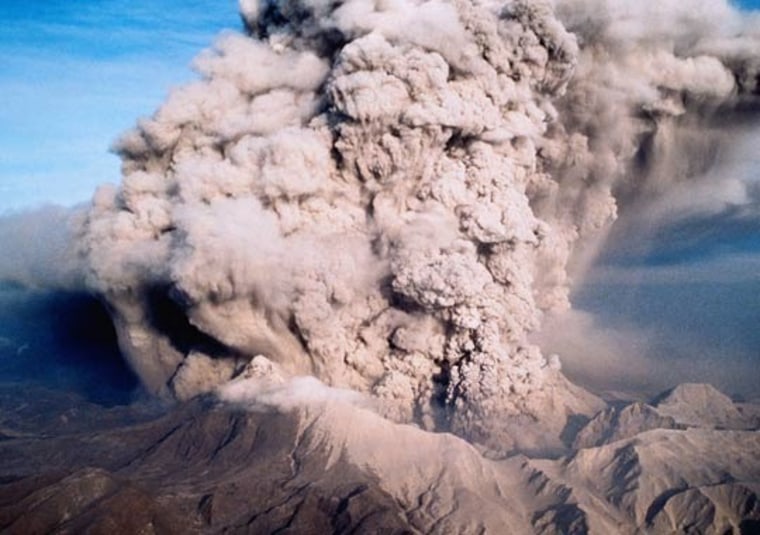A little melting ice can touch off a firestorm.
As ice sheets thawed toward the end of the last ice age, Earth responded with a fit of volcanic eruptions that spewed CO2 into the air and created the balmy climate we know today, according to a new study.
No one knows for sure what causes ice ages — or kicks Earth's climate out of them — but scientists suspect wobbles in planet's orbit change the amount of sunlight hitting the surface enough to affect temperatures every 100,000 years or so.
Still, glaciers melted rapidly near the end of the last ice age, and CO2 levels in the atmosphere rose by 100 parts per million. No amount of extra-sunny days can account for that, but Peter Huybers and Charles Langmuir of Harvard University think that perhaps volcanoes can.
"We know that changes in ice loading lead to changes in volcanism," Huybers said. "We wanted to see if the phenomenon was large enough scale to have a large impact globally."
It was. Huybers and Langmuir spliced two databases of volcanic eruptions worldwide over the last 40,000 years.
Eruption levels stayed low until around 12,000 years ago, then suddenly they suddenly shot up. The melting ice released so much pressure that the newly liberated volcanoes erupted at up to six times their normal rate, the researchers estimated.
The inferno lasted for 5,000 years and could have pumped enough CO2 into the atmosphere to raise concentrations between 40 and 50 parts per million, the researchers estimate. Changes in ocean chemistry probably released the rest.
The study was published in the journal Earth and Planetary Science Letters.
If the researchers are right, the picture for the future is unclear. Melting glaciers in Iceland, Alaska, the Andes and Antarctica could lead to regional increases in volcanic eruptions.
"The Vatnajokull glacier in Iceland, the largest in Europe, is retreating quite rapidly. It's definitely been a question in my mind: 'What would happen to the volcanoes underneath the ice as it thins?'" said Joseph Licciardi of the University of New Hampshire in Durham. "But the major removal of weight since the last glacial maximum has probably already occurred. The ice is already so thin."
But it's unlikely that human-induced climate change could lead to enough volcanic eruptions to exacerbate global warming.
"One of the most unsettling things in my mind is that coming out of the last ice age, CO2 levels went up as the planet warmed," Huybers said.
"If it turns out it's because of this mechanism, it might be a good thing, because most of the ice is already gone," he added. "It might be some small amount more assuring that there is not just one more thing that we're doing that's going to have a positive feedback on temperature."
